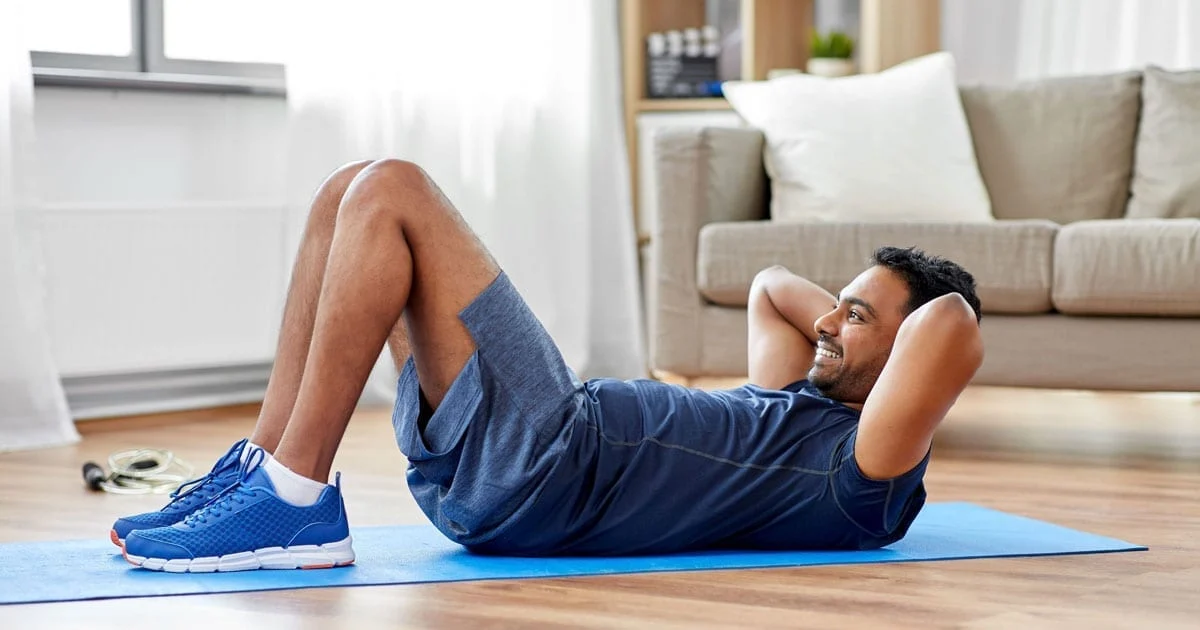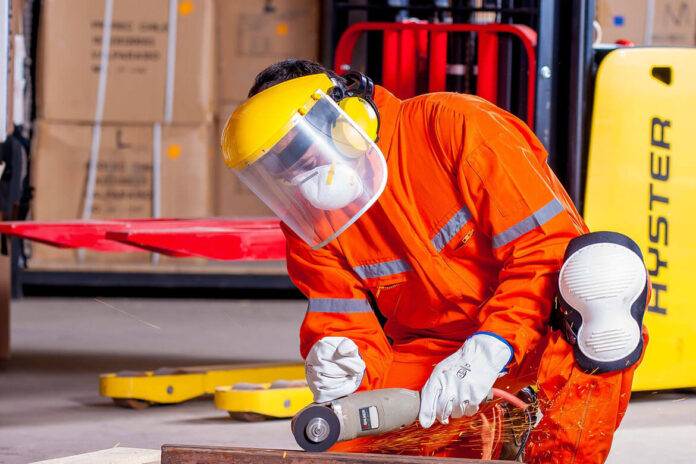Construction workers play a vital role in constructing the physical foundations of our communities. However, the demanding nature of the construction industry often puts them at a higher risk for injury and various health problems.
As per BLS, in 2020, approximately 174,000 construction workers suffered from workplace injuries and illnesses, along with 1,008 recorded fatalities.
Given these statistics, it is more important than ever for construction workers to prioritize their overall health and well-being.
Think of your body as your primary companion. Just like machinery needs maintenance, your body does too. Ignoring the signs of fatigue, stress, and injury can lead to long-term health problems and decreased productivity for construction workers.
With that said, let’s go through some effective ways construction workers can stay healthy and fit:
1. Get Regular Check-ups

Preventative care is an essential aspect of maintaining good health, and it is vital for construction workers exposed to various physical and environmental hazards on the job site.
By getting regular check-ups, you can identify and address any potential health problems early on, reducing the risk of serious health complications.
Various toxic substances at construction sites are proven hazardous, and asbestos is one of them. It is a mineral fiber found in several building materials, and upon the damage, asbestos fibers are released into the air.
Consistent exposure to asbestos affects the health of construction workers and may even cause mesothelioma. There are dedicated forums, such as www.mesotheliomahope.com, that construction workers can refer. These types of forums actively provide additional resources and support for mesothelioma patients and those at risk of developing it. They also offer information about treatment options, support groups, and legal resources for those affected by mesothelioma.
Therefore, regular check-ups can help construction workers maintain their health and treat any disease (if diagnosed) at the earliest stage.
2. Maintain Hygiene
Maintaining good hygiene is critical to staying healthy, especially for construction workers who are often exposed to dirt, dust, and various harmful substances and pathogens on the job.
Good hygiene practices help prevent the spread of illness and disease by reducing the risk of infection. Some good general hygiene practices include:
- Washing hands frequently – Clean hands before and after eating, after using the restroom, and after encountering potentially contaminated surfaces or materials.
- Using soap and water – Soap effectively removes dirt, dust, and other contaminants and helps kill germs and bacteria.
- Wearing clean clothes – Dirty or contaminated clothes can harbor germs and bacteria, so it is important to wear clean clothes to work each day.
3. Exercise Regularly

Regular physical activity helps strengthen muscles, improve flexibility, and increase endurance, which can help construction workers perform their job duties more efficiently. Exercising also helps release endorphins, which can improve mood and reduce stress.
Finding time for exercise can be challenging for construction workers, but there are plenty of options for staying active on the job site. Some include:
- Stretching – Stretching helps to reduce muscle stiffness and prevent injury. Workers can perform simple stretches such as neck rolls, arm swings, and calf stretches.
- Weightlifting – Lifting weights can help build muscle strength, improving overall physical performance. Workers can use resistance bands or handheld weights for this type of exercise.
- Cardiovascular exercise – Activities such as jumping jacks, running in place, and jumping rope can help to improve cardiovascular health and increase endurance.
4. Eat Healthy and Stay Hydrated
Construction workers need to have a healthy and balanced diet and stay hydrated. A nutritious diet can provide energy, improve focus, and support the body’s overall functioning. And proper hydration helps regulate body temperature, flush out toxins, and maintain energy levels.
The following is recommended to stay healthy:
- Consume plenty of fruits and vegetables as they provide essential vitamins, minerals, and fiber.
- Include lean protein to help repair and rebuild muscle tissue and keep hunger at bay.
- Choose whole grains as they provide energy and essential nutrients.
- Limit sugar and unhealthy fats as they contribute to weight gain and other health problems.
- Drink an average of 44 ounces of water daily.
5. Make Sleep a Priority

Adequate sleep helps repair and rejuvenate the body, improve cognitive function, and maintain a positive mood. On the other hand, sleep deprivation can lead to other problems, such as fatigue, irritability, and decreased productivity.
To maintain good sleep habits here’s what construction workers can do:
- Establish a consistent sleep schedule – Try to go to bed and wake up at the same time every day, even on weekends.
- Create a relaxing bedtime routine – Reading a book or taking a bath can help signal the body that it is time to sleep.
- Limit exposure to screens – The blue light emitted by electronic screens can interfere with the body’s natural sleep-wake cycle.
- Create a sleep-conducive environment – Keep the bedroom cool, quiet, and dark, and invest in comfortable bedding.
6. Reduce Stress
Stress is a natural part of life, but it can adversely affect physical and mental health when left unchecked. Chronic stress can increase the risk of developing health problems such as heart disease, depression, and anxiety.
Here are some strategies for reducing stress:
- Practice mindfulness – Techniques such as deep breathing, meditation, and yoga can help calm the mind and reduce stress.
- Connect with others – Spending time with friends and family, or participating in social activities, can help alleviate stress.
- Prioritize self-care – Doing activities such as getting a massage, reading, or relaxing bath can help reduce stress levels.
7. Wear Protective Gear (PPE)

Wearing proper protective gear (PPE) is crucial for maintaining workplace safety at construction sites. PPE can help prevent injuries, protect against hazards such as falling objects, and ensure that workers can complete their tasks safely.
Some common types of PPE for construction workers include:
- Hard hats – To protect against falling objects and head injury.
- Safety glasses or goggles – To protect against eye injury.
- Earplugs or earmuffs – To protect against hearing damage from loud noise.
- Work gloves protect hands from cuts, scrapes, and other injuries.
- High visibility clothing – To make workers more visible on the job site.
- Respirators – Protecting against inhaling harmful substances such as dust, fumes, or vapors.
To be effective, choose the right type of PPE and use it properly by following all the instructions mentioned.
Conclusion
A healthy and happy workforce is the cornerstone of a thriving construction industry. Construction work is physically demanding and stressful, making it even more important to prioritize workers’ health.
By following these tips, workers can increase their physical and mental resilience, reduce the risk of health problems, and perform at their best on the job. The benefits of maintaining good health are numerous, including improved job satisfaction, increased productivity, and a better quality of life.






